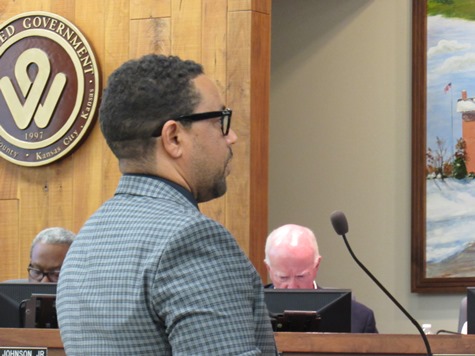
by Mary Rupert
After months of discussion, the Unified Government Commission on Thursday night approved a $395 million, flat mill levy rate budget that is very close to the one proposed by UG Administrator Doug Bach on June 28.
The vote on the budget was 8-1 at the 7 p.m. meeting on Thursday with Commissioner Tom Burroughs voting no. The commission heard public comments on the budget at the 5 p.m. meeting.
The 2020 budget contains no property tax rate increases for Kansas City, Kansas, and Wyandotte County, according to officials. Forty-eight percent of residents’ property tax bill payments go to the UG, with the remainder going to the schools, community college, libraries and state. With a flat mill levy rate for the UG, if the resident’s valuation remains the same, the tax bill from the UG will remain the same; if the valuation goes up, the tax bill will go up.
While there is a $25 million difference between revenues and expenditures in the budget, it will be made up from the UG’s reserves, according to officials. Bach said the UG will be using the cash it had placed in a sewer fund for sewer system projects, without having to go into debt for it.
Bach said the UG has spent about nine months working on the budget, starting in the fall and going through the year giving the commission and the public opportunities for comments. The first public hearing on the budget was in March.
According to officials, next year the UG will do “priority-based budgeting” and will look at what might be trimmed, with the process starting this fall.
Reginald Lindsey, UG budget director, said the biggest part of the city general fund, at 58 percent, is public safety at $95 million. For the county general fund, the biggest part also is public safety, at 56 percent, at $24 million.
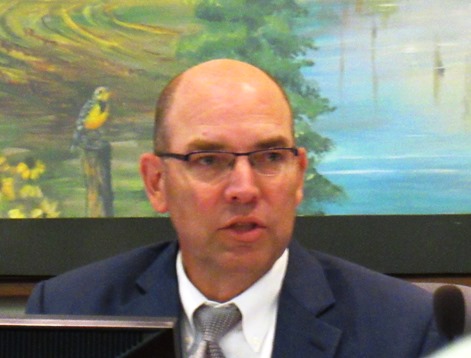
Bach listed projects contained in the 2020 budget, including the I-70 and Turner Diagonal interchange at $3.75 million; the Leavenworth Road, 63rd to 78th project at $4 million; Kansas levee betterment at $10.2 million from the UG, with $450 million through the federal government; street repair and maintenance, $9 million; Minnesota Avenue, 6th to 7th Street, $1.1 million; Kaw Point Biosolids plant, $40 million; 131st and Leavenworth Road intersection, $1 million; courthouse projects, $3.15 million; Wolcott expansion, $15.5 million; Turkey Creek wingwall repairs, $9.6 million; and 7th and Central intersection, $500,000.
A total of $27.8 million was budgeted for flood control projects. At the July 15 budget meeting, commissioners heard a plan to begin the program for body cameras for police officers in the spring, at a cost of $1.6 million to $1.8 million over five years. The UG also is spending about $13 million a year on water pollution control projects.
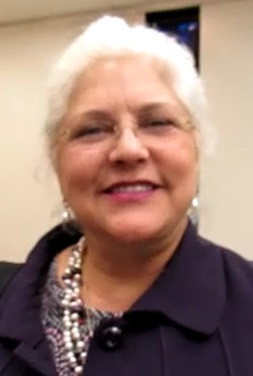
Kathleen von Achen, UG chief financial officer, said the administrator’s original budget proposal was amended to include an additional $140,000 to the sheriff’s budget for six months or one-half of four full-time equivalency positions for security officers for the new juvenile center that is expected to open in April 2020. The funds will come from the reserves, not from a tax increase, she said. This amendment for security for the new juvenile center is part of a plan to increase security at City Hall and other UG buildings.
“The budget that was adopted by the commission will sustain operations and get us through the fiscal challenges we’re seeing with our sales tax dropping,” von Achen said. “But in the fall we’re looking forward to embarking on priority-based budgeting to review all the services we provide our residents, and determine which ones of those are the highest priority so that we can focus on the priority services.”
‘No’ vote based on PILOT fee
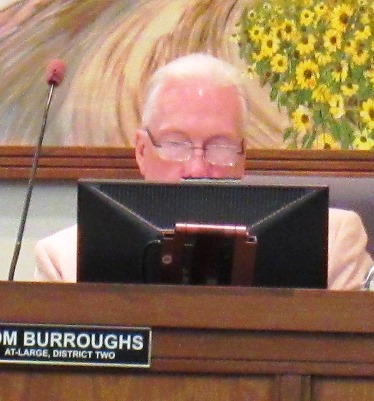
Burroughs explained after the meeting that there has been much discussion in the community about the PILOT (payment in lieu of taxes) fee that the UG places on BPU bills. The PILOT fee remained the same as last year in the budget at 11.9 percent, but Burroughs said it will produce more funds this year for the UG. Also, he said there will be increases in trash and sewer fees in the BPU bills. These fees are placed on the BPU bills by the UG.
“I’m just listening to the constituents,” Burroughs said. “The PILOT warrants much discussion and consideration.”
The trash or solid waste fees on the BPU bill will increase by about 25 cents a month per household, according to officials. The sewer fees on the BPU bill are increasing around 4.6 percent, according to the budget document.
The budget dealt with some fluctuating revenue. According to the UG budget document, while sales tax revenue estimates decreased in the second half of 2018, the BPU PILOT revenues increased about $1.1 million for the 2019 amended budget. The sales tax revenues peaked in 2017 with the STAR bonds at Village West, but then declined and flattened in 2018.
The budget document also contained a reference to tentative anticipated payouts of over $200,000 a year through 2021 to the Hollywood Casino, which appealed its taxes.
Budget information is online at https://www.wycokck.org/Budget.aspx.
Public hearing on budget
The UG Commission heard some criticism from speakers, including some candidates, at a public hearing on the budget Thursday night.
About 25 persons attended the 5 p.m. public hearing, where six persons spoke.
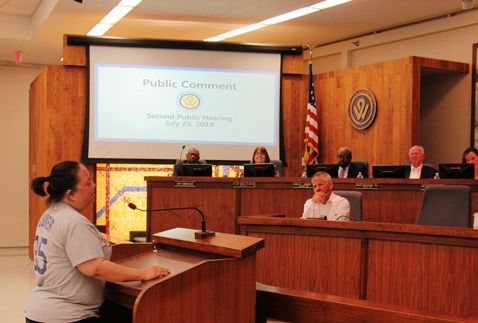
Faith Rivera, a candidate for the Board of Public Utilities, said there are pools needed in the neighborhoods, along with better parks, and funds for programs for children. She said the community wants action on the PILOT (payment in lieu of taxes) fee on the BPU bills. She wanted the community centers kept in the neighborhoods for use by residents and children.
“I would hope that you get this because we’re running against you,” Rivera said.
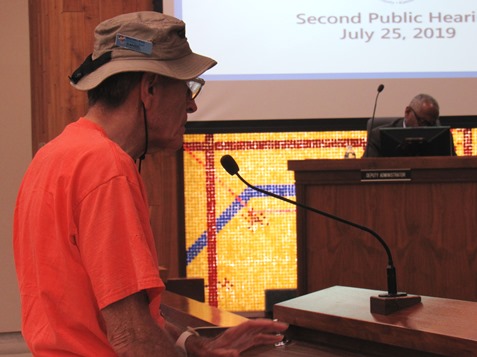
Dan Welch advocated for the parks, giving information about the history of Huron Place. The steps into Huron Cemetery collapsed, he said, and help is needed.
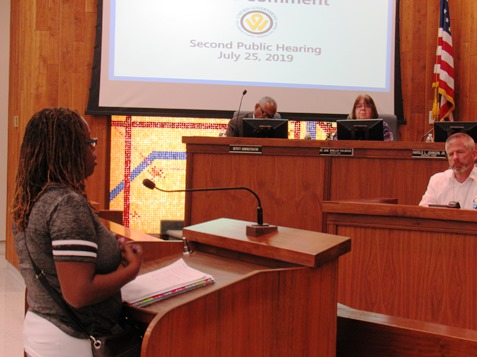
Tscher Manck, a candidate for Wyandotte County register of deeds, talked about children’s programs.
“You guys are spending $28 million on something that I call a baby jail, that is the juvenile justice center,” she said. “I want to know why we can’t have a budget like $28 million for parks and rec, so we can ensure the future for our kids, instead of ensuring that their future will fill up your new jailhouse over there for you. Why is it the jail costs more than parks and rec? Why is it the schools and parks and rec don’t collaborate when we service the same kids every day?” she asked.
The consolidated parks expenditures in the 2020 budget are $6.2 million, a decrease from $6.9 million in 2019, according to the budget document.
Why aren’t there more kids’ programs, she asked.
“We’ve invested in their failure instead of their success,” she said.
A student at Sumner Academy said she wished there were more programs for kids her age. There have been more teen suicides and more bullying recently, she said, and she wishes there was something society could do to help them.
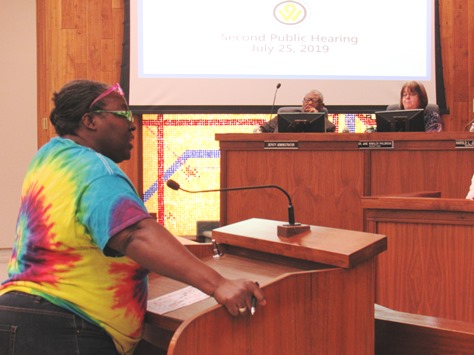
Janice Witt, who recently posted on social media that she is running for mayor in 2021, said the residents are giving the 3/8ths-cent sales tax to go to safety and security, yet the police force is 40 officers down. “Where is that money?” she asked. “When do failed management practices become a crime?”
She mentioned several projects that she said did not go well, such as going for two years without an at-large commissioner, the closed Backfire BBQ, the T-Rex restaurant, the T-Bones, the STAR bond windfall, failing infrastructure, The Woodlands, the PILOT fee, and no grocery store in the northeast.
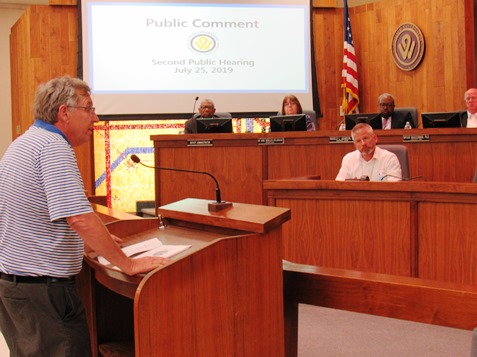

Doug Spangler, a former state representative, said when the UG invests $7.4 million to buy the former Indian Springs mall, then spends $16 million in addition, it’s a total of $23 million for that real estate.
“You are a real estate enterprise right now,” Spangler said. “So you have a $23 million enterprise that’s contained as an asset in this budget, and then you sell it for $400, with a 20-year tax abatement. Your budget will never provide solutions doing that. You have to be more transparent in terms of putting out a fully disclosed RFP with competitive timelines.”
Then the UG could profit and build assets, he said.
Out of the nearly 160,000 citizens in Wyandotte County, who pay taxes, use taxes, the PILOT fee and sales taxes, only seven or eight could get to the budget hearing, he said.
“That should alarm you more than what you realize,” Spangler said.
“People are frustrated, because they talk about that and provide real solutions, and nothing happens,” he said. “Next year you may be down to five, if you keep the same course.”
He asked the commission to consider a mill levy reduction. He said last year the staff told the commission there would be a collapse if they had a reduction, but the commission went ahead with one, and the UG produced more money to its budget this year than last year.
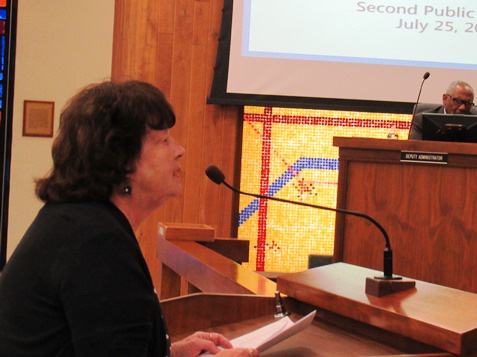
Marcia Rupp, who is active in a neighborhood group, told the commission about code violations in the neighborhood.
Other budgets approved
The UG Commission also approved budgets for the Wyandotte County Library levy, which is in the Turner, Piper and Edwardsville areas; and the Community Development Block Grant program and accompanying programs.
Also, on a motion by Commissioner Melissa Bynum, the commission reduced the mill levy for the Self-Supporting Municipal Improvement District, also known as the Downtown Improvement District, to 10 mills from its previously proposed 11.023 mills. Bynum said she took this action in consultation with the Downtown Shareholders.
A video of the meeting is online at https://www.youtube.com/watch?v=5vrGBzZAJNg.
To see an earlier story on the budget, visit https://wyandotteonline.com/no-mill-levy-rate-increase-proposed-for-ug-budget/ .

Thanks for this great summary on the budget hearing!